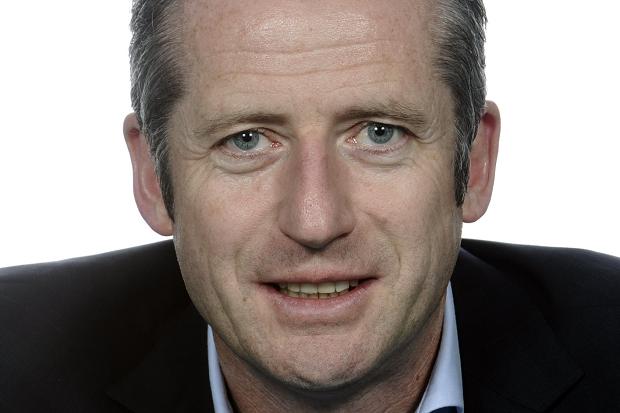
ABPI president: NICE needs political reform
pharmafile | June 17, 2014 | News story | Business Services, Medical Communications, Research and Development | ABPI, NHS, NICE, Pfizer, QALY, emms, jonathan, vba
NICE needs to be reformed with its QALY formula heavily revised if it is to meet the challenges of 21st century medicine, according to the new president of the ABPI.
In his first interview with Pharmafile since becoming the head of the UK pharma lobby group, Jonathan Emms – who is also head of Pfizer UK – tells us he wants a new mandate for NICE.
England’s drug pricing watchdog is currently undergoing a consultation which could change its remit, but Emms says this will not go far enough and wants it to be more pro-innovation.
“We think the intervention should be political, rather than technical,” he says. “NICE’s methods are dominated by a small number of health economists with a certain view of the world and dictated by their methods and their methodologies.”
The main bone of contention for Emms, who has criticised NICE in the past in editorials for The Times newspaper, is its use of QALY – the formula used to assess the cost-effectiveness of new drugs.
“I don’t think we have to use QALY, that’s the first thing – QALY isn’t applied to all medical interventions, only to medicines, and the threshold hasn’t changed since NICE’s inception in 1999.
“The problem is that by using QALY, you’re always subjecting new medicines to a rather formulaic, algorithmic assessment that no other healthcare system gets. It is important that our medicines are scrutinised in an appropriate way and at the moment, we just feel that the methods and the approach that is taken today, just hasn’t moved with the times sufficiently.
“But on top of that, it’s really important to say that the industry doesn’t want a blank cheque: that’s not our deal with society, the deal with society is producing medicines at the right cost. I just don’t think QALY is always the best method to arrive at the best cost.”
He points out that he believes the NHS is ‘the envy of the world’. “We have brilliant doctors and nurses who devote their lives to their jobs, but they are working with a medicines cabinet from the last century – they’ve simply not got the tools to do the job.” Part of the reason for this, he says, is because new innovations just aren’t being picked up quickly enough.
Despite his misgivings however, QALY does not look to be changed soon, and the formula is not part of the ongoing consultation on NICE’s future shape.
This is a source of frustration for Emms, who also says that the new drug pricing deal in the UK, known as Value-Based Assessment (VBA), will not help offset the problems with NICE.
“We [the ABPI] don’t think that VBA will necessarily provide the answers. Therefore, the ABPI has been very clear on this, that we would like a new mandate for NICE, in the same way that the Scottish Medicines Council [Scotland’s NICE equivalent] has had one from its government.”
When asked if he thought NICE should be able to set prices, or at least negotiate with pharma on cost, he was very clear: “I don’t think that the role of NICE should be to negotiate, or publically set, or get involved in pricing discussion; that’s not an area we’re building toward, nor is it an appropriate area for NICE to engage in.”
Reputation
One of the big pharma issues Emms says he wants to deal with during his presidency is pharma’s reputation.
He is bullish about the industry’s ‘good news story’ and says that it’s time for the ABPI to tell the story of its success, rather than having a negative narrative being told for it, often by the media.
But when asked about previous bad behaviour, such as the extravagant trips abroad between pharma sales reps and doctors, and the fact that any policies to stop these practices were only introduced very recently, Emms is more humble.
“Some of the practices of the past were regrettable,” he admits. “But actions speak louder than words, and I think if you look at what the ABPI have put in place [such as releasing data on payments to doctors from 2012], it goes beyond the minimum requirement.
“And I think that’s got to be the way that we deal with this because quite honestly, we can’t just do things at the last possible moment, and we should actually be ahead of the curve.
“I can’t defend what happened in the past, but I can influence what happens in the future and to really change that. You know, when I first started in the industry and saw the way the whole industry worked – well it felt uncomfortable to be honest, as a new person coming in. But the way we are now is worlds apart.”
The full interview with Jonathan Emms will be published in the July/August edition of Pharmafocus.
Ben Adams
Related Content

EC approves Pfizer’s Emblaveo for multidrug-resistant infection treatment
Pfizer has announced that the European Commission (EC) has granted marketing authorisation for Emblaveo (aztreonam-avibactam) …

NICE recommends migraine treatment for NHS use
The National Institute for Health and Care Excellence (NICE) has shared draft guidance recommending AbbVie’s …

GSK’s Jemperli recommended by NICE for endometrial cancer treatment
GSK has announced that the National Institute for Health and Care Excellence (NICE) has recommended …







